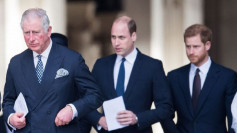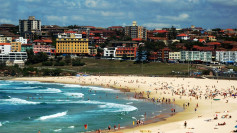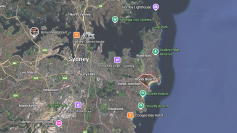North Korean leader Kim Jong Un paid tribute to his late father, Kim Jong Il, on Tuesday, marking the 13th anniversary of his death with a visit to the Kumsusan Palace of the Sun in Pyongyang. The solemn commemoration, reported by state media on Wednesday, also honored Kim's grandfather, Kim Il Sung, the founding leader of North Korea.
Kim Jong Un was accompanied by senior party and government officials, including Premier Kim Tok Hun, Choe Ryong Hae, and Jo Yong Won, according to the Korean Central News Agency (KCNA). His sister, Kim Yo Jong, a prominent figure in the regime, also attended the ceremony. A floral basket bearing Kim's name was placed before the statues of his father and grandfather, and Kim bowed in homage, reinforcing the deep reverence North Korea places on its ruling lineage.
The Kumsusan Palace of the Sun, a grand mausoleum that houses the embalmed bodies of Kim Il Sung and Kim Jong Il, serves as a focal point of the North Korean regime's efforts to preserve its dynastic legacy. While the scale of this year's commemorative events was relatively modest-consistent with the North's tradition of reserving lavish celebrations for milestone anniversaries ending in five or zero-the occasion underscored Kim Jong Un's ongoing efforts to consolidate his family's personality cult while subtly shifting focus to his own leadership.
Kim Jong Il, who ruled North Korea from 1994 until his death in 2011 at the age of 69, is remembered as a pivotal figure in the country's history. His death from heart failure led to Kim Jong Un's rise to power. Over the past 13 years, Kim Jong Un has sought to both honor his predecessors and assert his authority as the nation's supreme leader.
Notably, Kim Jong Un's visit to the mausoleum continues a tradition he has upheld almost annually since assuming power, with 2022 being a rare exception. Analysts view these visits as critical symbolic gestures aimed at reinforcing loyalty within the regime and emphasizing the enduring legacy of the Kim family, which remains central to North Korea's political identity.






